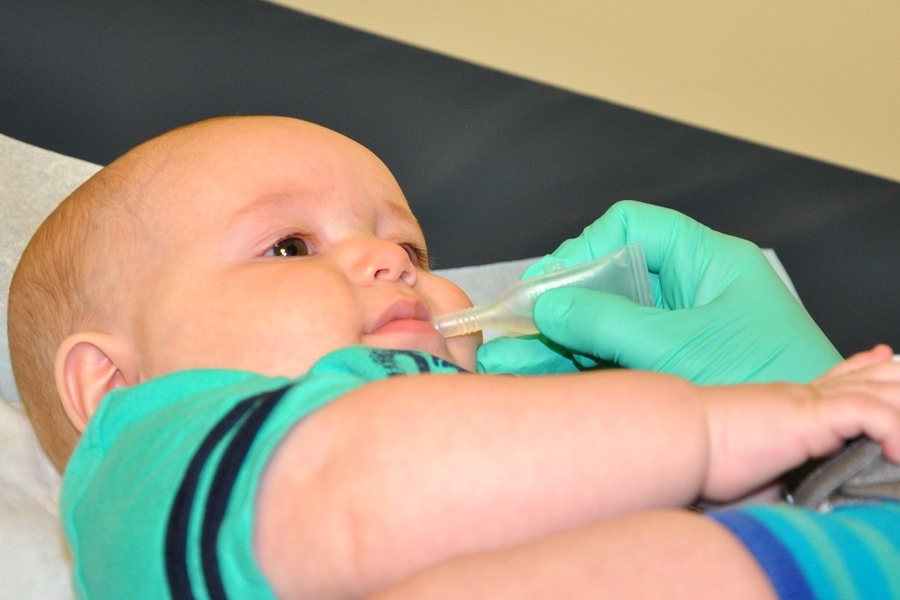
Polio Drops: A Protective Shield For Your Baby
21 Nov 2017 | 4 min Read
Babychakra
Author | 1369 Articles
Why vaccinate your child against polio?
Polio or poliomyelitis is a disease caused by the poliovirus, affecting children below 5 years more commonly than adults. It is an infectious disease causing damage to the spinal cord and leading to paralysis of muscles.
Polio virus is shed in the stools of the infected person and spread through contaminated food and water. Once the paralysis sets in, there is no way of reversing it; hence, prevention in the form of polio drops is the best option in the fight against polio.
Immunization is the most beneficial tool to safeguard your child against polio. The polio vaccine is available in the injectable form (IPV- inactivated polio vaccine) and as oral drops OPV (oral polio vaccine). Both polio oral drops and injectable vaccine give long lasting and effective protection against polio in children. Compared to injectable polio vaccine, oral polio drops are easy to administer and cost effective.
What are polio drops made of?

Polio drops contain live but weakened polio viruses that cannot cause the disease in a healthy body. The virus helps the body produce antibodies (cells of the immune system that fight against diseases) that provide immunity against the disease.
According to world health organization (WHO), administration of oral polio drops is compulsory for babies at birth in several countries.
In India, polio vaccination started in 1978 in the Expanded Programme on Immunization (EPI).
Polio drops vaccination schedule In India
|
Age |
OPV (oral polio vaccine) dose |
|
At birth or up to 15 days after birth |
‘zero’ of OPV |
|
6 weeks |
First dose of OPV |
|
10 weeks |
Second dose of OPV |
|
14 weeks |
Third dose of OPV |
|
6 months |
1st Dose of OPV |
|
9 months |
2nd Dose of OPV |
|
4-6 years |
3rd Dose of OPV |
Oral polio vaccine is given in frequent dosages to children up to the age of 5 years.
Although the above vaccination schedule should be strictly followed, do not worry. Polio drops missed by your child due to any reason can be taken at the earliest. You must continue with the next date of the vaccination chart. Also the missed polio drops of pulse polio programme are administered by the officials up to 1 week after the program dates.
Pulse Polio Immunization (PPI)
OPV poster

In 1995, India launched Pulse Polio immunization (PPI) programme under the Global Polio Eradication Initiative by WHO. PPI was initiated by the Government of India with an aim to make the country polio-free. PPI intended to reach each and every single child of 5 years and below in the farthest of most remote areas in the country.
All children up to 5 years of age should be given polio drops in addition to the standard vaccination schedule. It is safe to give polio drops multiple times in children up to the age of 5 years in order to ensure total eradication of the disease from the country.
Pulse polio drops side effects
This vaccine does not have side effects and is safe to take. However, these drops are sensitive to heat and may get spoilt after continuous exposure to high temperatures. Thus, suitable measures are taken for the preservation of OPV vials. All polio drops bottles or vials bear a heat sensitive indicator that helps the health worker to know if it contains expired polio drops due to heat exposure. Such vials are immediately discarded and not used again.
Oral polio vaccine in very rare cases can cause an adverse effect known as vaccine-associated paralytic poliomyelitis (VAPP). The instances are 1 per 2.4 million doses of OPV administered. Because of such low incidence rate of adverse effects, (WHO) has recommended the use of OPV in standard immunization programme in most countries.
Disclaimer: The information in the article is not intended or implied to be a substitute for professional medical advice, diagnosis or treatment. Always seek the advice of your doctor.
Also read: Vaccination Chart: A Boon For Newborns
Explore the entire collection of articles: Baby’s Health
A


Related Topics for you
Suggestions offered by doctors on BabyChakra are of advisory nature i.e., for educational and informational purposes only. Content posted on, created for, or compiled by BabyChakra is not intended or designed to replace your doctor's independent judgment about any symptom, condition, or the appropriateness or risks of a procedure or treatment for a given person.
